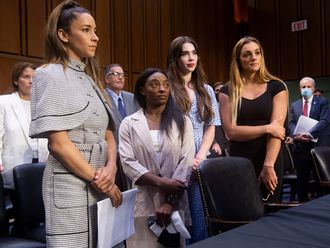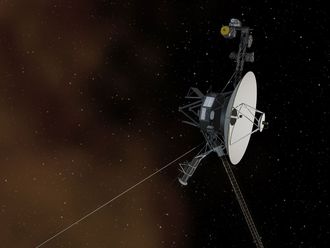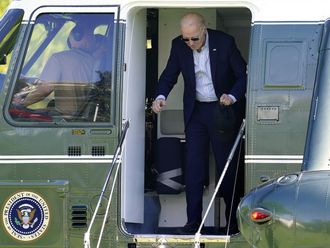Washington: During 14 years in US custody, Abu Zubaydah has come to symbolise, perhaps more than any other prisoner, how fear of terrorism after the September 11, 2001, attacks changed the United States.
He was the first detainee to be waterboarded, and his brutal torture was documented in a Senate report. He is among those held without charges and with no likelihood of a trial. The government long ago admitted that he was never the top leader of Al Qaida it claimed he was at the time of his capture in 2002, but it insists that he may still be dangerous.
In all that time, Abu Zubaydah, now 45, had never been seen by the outside world. That changed on Tuesday, as his calm face was beamed via video feed from the Guantanamo Bay military prison to a Pentagon conference room.
In a long-postponed hearing, he argued, through a statement read by a uniformed soldier, that he posed no threat and should be released. A profile prepared by the Defence Department, also read aloud, concluded with unsettling ambiguity that he “probably retains an extremist mindset”.
The occasion was Abu Zubaydah’s first appearance before a Periodic Review Board, convened under the military detention system to determine whether a prisoner would pose a danger if released.
Under the convoluted rules that govern inmates at Guantanamo, Abu Zubaydah did not speak during the open part of the hearing. But in the statement summarising his views, Abu Zubaydah declared that he “has no desire or intent to harm the United States or any other country”.
Musing about what appeared to be a still-distant prospect, he said he wanted to be reunited with his family and “has some seed money that could be used to start a business”.
A dozen reporters and human rights advocates watched the live video of the 17-minute unclassified part of the proceeding. No member of the public other than his lawyers had seen Abu Zubaydah since his March 2002 capture in Pakistan, after a shoot-out in which he was badly injured.
Abu Zubaydah may have spoken during the classified part of the hearing that followed the open session and was expected to last for several hours. A notice posted afterward said he had decided he did not want the redacted transcript made public.
The review panel, comparable to a civilian parole board, is composed of representatives of six security agencies who participated in the hearing from an undisclosed location in the Washington area. It will announce, a month or longer from now, whether it recommends the continued detention of Abu Zubaydah or his transfer to another country.
Of 779 people held at Guantanamo since 2001, 61 remain. The government says about half are, like Abu Zubaydah so far, impossible to put on trial but too dangerous to release.
Dressed in a white tunic and wearing a neatly trimmed beard, Abu Zubaydah, whose mental stability has been questioned by some US officials, listened attentively, resting his chin on his right hand. He did not react visibly as officials read various statements about him. The eye patch that in earlier photographs covered his left eye, injured at some point after his capture, hung from a strap around his neck. He wore one pair of glasses and switched to another pair to read a document.
Abu Zubaydah, born in Saudi Arabia to a family of Palestinian background, became a sort of travel agent, camp administrator and facilitator for militant fighters in Afghanistan in the early 1990s, after the ragtag force of Islamic soldiers known as the mujahideen forced the Soviet army out of the country.
But when he was shot and taken into US custody six months after the September 11 terrorist attacks, he was the first significant suspect captured in an increasingly desperate global CIA manhunt. At the time, US intelligence officials wrongly concluded that he was a top-ranking leader of Al Qaida who might have knowledge of forthcoming plots.
In their profile, posted on the web this week, military authorities gave a much-modified but still rather vague description of his history. It said he ran a “mujahideen facilitation network” in the 1990s, “played a key role in Al Qaida’s communications” and had close contact with the No. 2 in Al Qaida at the time.
He “possibly” had advance knowledge of the attacks on US embassies in East Africa in 1998 and the bombing of the US destroyer USS Cole in Yemen in 2000, the profile said. He was “generally aware” of planning for the 9/11 attacks, it said, and “possibly” coordinated training at a camp called Khalden when two of the future hijackers were there.
But Zubaydah told his “personal representatives” — the two members of the military assigned to speak with him — that he had no intention of committing terrorist acts. He “repeatedly said that the Islamic State [Daesh] is out of control and has gone too far,” the personal representatives said in their statement. (Officials said detainees have access to live television and radio in multiple languages, in addition to two Arabic newspapers, enabling them to keep up with world events.)












